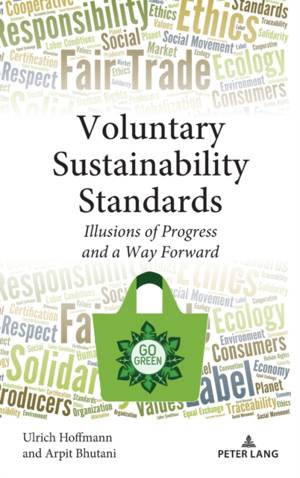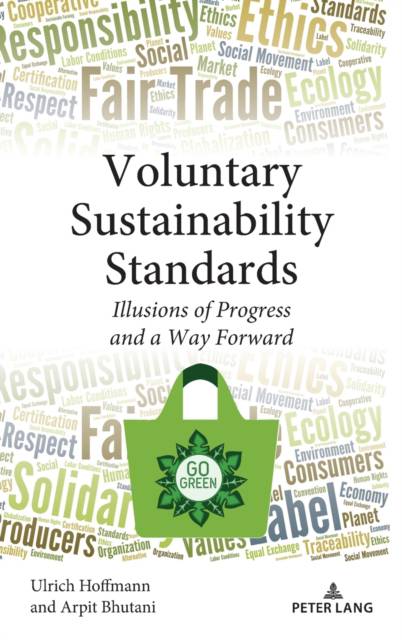
- Retrait gratuit dans votre magasin Club
- 7.000.000 titres dans notre catalogue
- Payer en toute sécurité
- Toujours un magasin près de chez vous
- Retrait gratuit dans votre magasin Club
- 7.000.0000 titres dans notre catalogue
- Payer en toute sécurité
- Toujours un magasin près de chez vous
Voluntary Sustainability Standards
Illusions of Progress and a Way Forward
Ulrich Hoffmann, Arpit Bhutani
Livre relié | Anglais
174,95 €
+ 349 points
Description
Sustainability standards, and in particular voluntary sustainability standards (VSS) have become an integral part of facilitating green consumerism and promoting green economy and green growth. While such standards have undoubtedly led to some desirable change in production structures and methods, as well as in improved material, resource and energy efficiency, overall results have remained modest, mostly incremental and far from leading to transformational, sector- or economy-wide changes. It is therefore high time that after some 30 years of increasing use of sustainability standards one takes stock of their achievements and pros and cons. This analysis should however not be confined to a technical review of the progress in improving or perfectioning the standard system and best practice in standard application and use, but primarily focus on a review of the political economy of VSS and their record in reshaping the current largely unsustainable agro-food economy and the situation of farmers. Many, in particular voluntary sustainability standards are now at a crossroads, but instead of realizing the systemic, deep-rooted nature of the crisis and conceiving of much-required reforms most standard advocates continue to focus their activities on improving the functioning of the standard system and emulating or disseminating best standard-compliance practice. Against this background, the book wonders what the illusions and what the reality of VSS have been in recent decades and whether these standards can be made fit for a future, in which sustainability issues are bound to play an even more important and pressing role. As appendix we looked into the relationship between the Corona crisis as one of the many other epidemics which have hit us hard and the future of globalized supply chains, of which VSS are part of.
Spécifications
Parties prenantes
- Auteur(s) :
- Editeur:
Contenu
- Nombre de pages :
- 146
- Langue:
- Anglais
Caractéristiques
- EAN:
- 9781433187711
- Date de parution :
- 27-10-21
- Format:
- Livre relié
- Format numérique:
- Ongenaaid / garenloos gebonden
- Dimensions :
- 152 mm x 229 mm
- Poids :
- 394 g

Les avis
Nous publions uniquement les avis qui respectent les conditions requises. Consultez nos conditions pour les avis.






